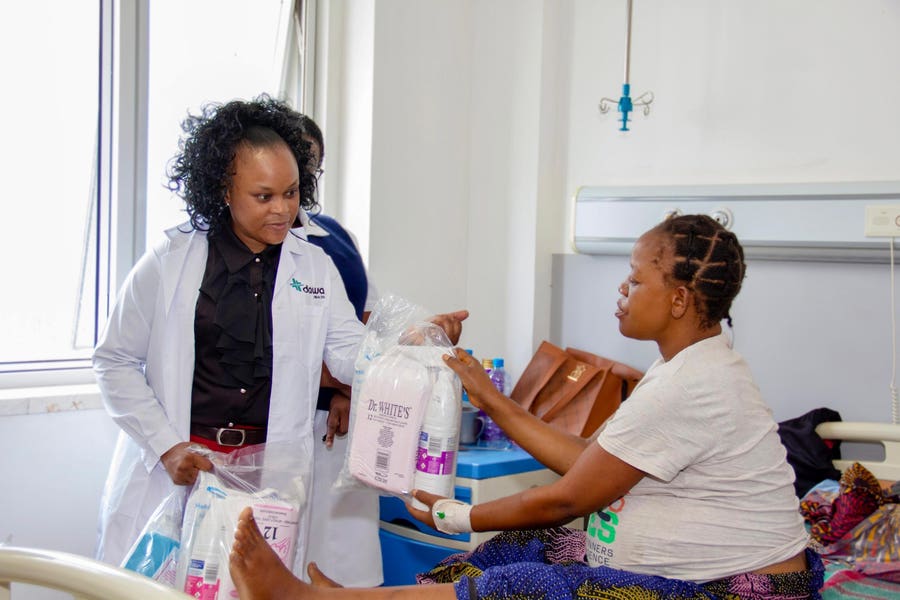A group of entrepreneurs, researchers, and healthcare experts in Zambia are utilizing artificial intelligence to enhance healthcare services for expectant mothers.
As per a recent study in 2022, Zambian women still face a 1% risk of maternal mortality, despite a significant drop in the country’s maternal death rate from 2000 to 2017.
Tafadzwa Kalisto Munzwa, the CEO of Dawa Health based in Lusaka, Zambia, highlights the DawaMom initiative, which integrates AI tools, mobile clinics, last-mile health workers, and digital resources to advance maternal and child health.
DawaMom engages more than 60 community health workers who deliver healthcare services within communities, with over 800 mothers enrolled on the mobile platform.
Munzwa explains that the AI models cater to patient inquiries by extracting health advice from locally curated materials to address vernacular concerns. Additionally, the AI aids doctors in analyzing ultrasound scans to detect high-risk pregnancies such as placenta previa, multiple pregnancies, and abnormal fetal positions.
The objective is to democratize maternal healthcare access through AI technology, community health workers, and ultimately achieve universal health coverage in Lower/Middle income countries to combat maternal mortality rates.
Munzwa elaborates on ongoing research focusing on postpartum hemorrhage and obstructed labor- cephalic-pelvic disproportion (CPD) utilizing various maternal and fetal parameters to aid clinicians in identifying high-risk pregnancies promptly for necessary referrals.
The overarching goal of these projects is to reduce maternal and child mortality and morbidity during pregnancy, childbirth, and infancy.
Zambia serves as an ideal testing ground for this technology due to the government’s emphasis on digital health strategies and existing e-health platforms, coupled with high mobile and internet penetration rates.
While acknowledging the potential benefits of AI in healthcare decision-making, Munzwa also highlights challenges such as AI hallucination, biased datasets, and excessive reliance on technology.
Collaborating with experts from diverse fields like anthropology and biostatistics/medicine, Munzwa aims to generate empirical evidence to bolster their maternal and child health initiatives.
Moving from Zimbabwe to Zambia, Munzwa’s upbringing in Harare sparked his interest in STEM, particularly in healthcare, leading to his current endeavors in improving maternal and child health services through research and innovation.
Munzwa emphasizes the importance of researchers from the Global South taking the lead in addressing local challenges, as they are directly impacted by these issues and are crucial in driving the adoption of effective solutions within their communities.
In a similar vein, Libyan tech-CEO Mohamed Aburawi leverages AI technology through his telehealth startup Speetar to provide mental health services in northeastern Libya post the devastation caused by Storm Daniel in late 2023.
Aburawi’s team offers trauma counseling, grief support, and stress management services, leveraging a network of remote mental health professionals to cater to the local Arabic-speaking population.
Through partnerships with local telecom companies, Speetar ensures affected families have access to the platform, incorporating cultural nuances and an AI bot trained on disaster-specific data to guide patients before connecting with specialists.
Early mental health intervention post-disasters has shown to significantly reduce chronic psychiatric disorders, with telehealth interventions proving cost-effective compared to traditional in-person care, especially beneficial in resource-constrained settings.






